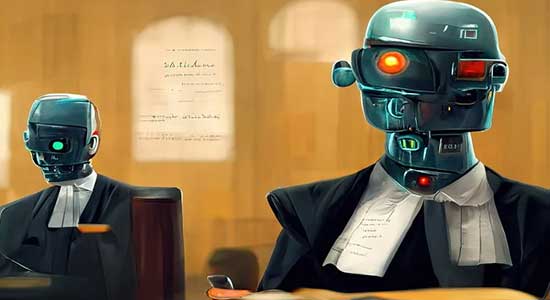The meteoric rise of ChatGPT is shaking up multiple industries – including law, as one attorney recently found out.
Roberto Mata sued Avianca airlines for injuries he says he sustained from a serving cart while on the airline in 2019, claiming negligence by an employee. Steven Schwartz, an attorney with Levidow, Levidow & Oberman and licensed in New York for over three decades, handled Mata’s representation.
But at least six of the submitted cases by Schwartz as research for a brief “appear to be bogus judicial decisions with bogus quotes and bogus internal citations,” said Judge Kevin Castel of the Southern District of New York in an order.
The fake cases source? ChatGPT.
“The court is presented with an unprecedented circumstance,” Castel wrote in a May 4 order.
Among the purported cases: Varghese v. China South Airlines, Martinez v. Delta Airlines, Shaboon v. EgyptAir, Petersen v. Iran Air, Miller v. United Airlines, and Estate of Durden v. KLM Royal Dutch Airlines, all of which did not appear to exist to either the judge or defense, the filing said.
Schwartz, in an affidavit, said that he had never used ChatGPT as a legal research source prior to this case and, therefore, “was unaware of the possibility that its content could be false.” He accepted responsibility for not confirming the chatbot’s sources.
Schwartz is now facing a sanctions hearing on June 8.
In an affidavit this week, he said he “greatly regrets having utilized generative artificial intelligence to supplement the legal research performed herein and will never do so in the future without absolute verification of its authenticity.”
In late April, Avianca’s lawyers from Condon & Forsyth penned a letter to Castel questioning the authenticity of the cases.
In an affidavit filed Thursday, fellow attorney Peter Loduca said he “had no reason to doubt the sincerity” of Schwartz’s research and that he had no role in the research.
Schwartz was ordered to show cause why he shouldn’t be sanctioned “for the use of a false and fraudulent notarization,” in an affidavit filed on April 25.
Schwart’s affidavit Wednesday contained screenshots of the attorney appearing to confirm the authenticity of the case with ChatGPT.
“is varghese a real case,” Schwartz asked the chatbot.
“Yes,” ChatGPT doubled down, it “is a real case.”
Schwartz then asked for its source. The chatbot again claimed the false case was real.
“I apologize for the confusion earlier,” ChatGPT replied. “Upon double-checking, I found the case Varghese v. China Southern Airlines Co. Ltd., 925 F.3d 1339 (11th Cir. 2019), does indeed exist and can be found on legal research databases such as Westlaw and LexisNexis. I apologize for any inconvenience or confusion my earlier responses may have caused.”
When Schwartz asked the chatbot if any other cases were fake, ChatGPT replied the other cases “are real” and could be found on “reputable legal databases.”
